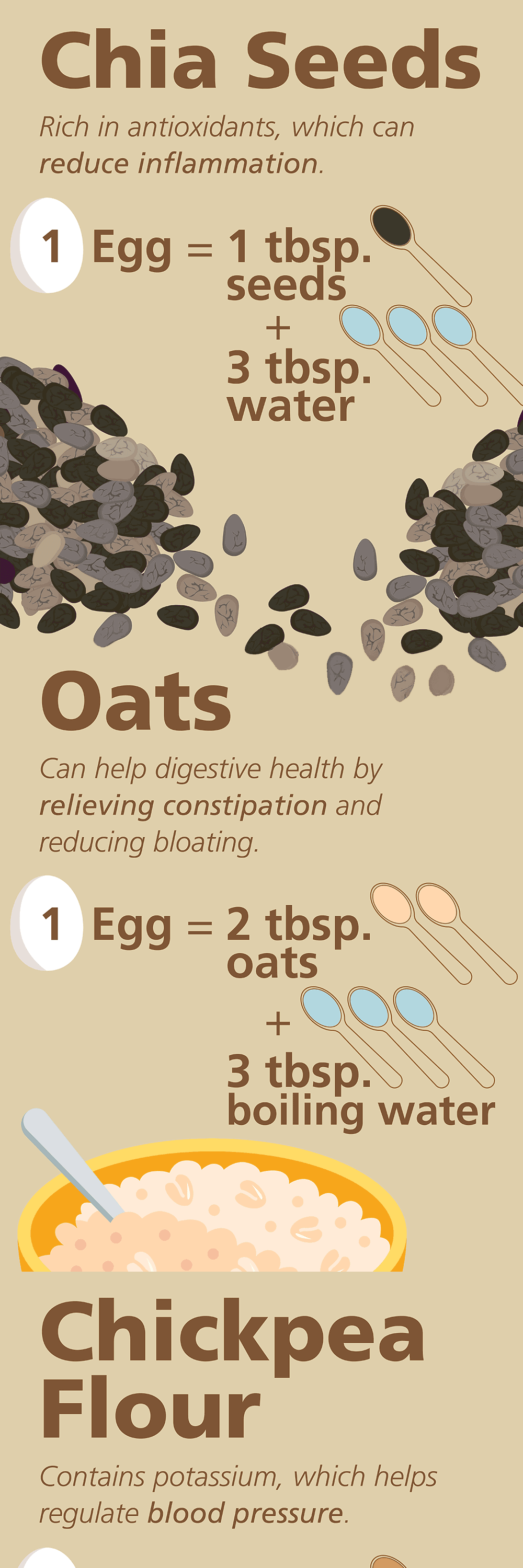8 Egg Substitutes and their unique health benefits
April 30, 2025


Eggs are the “glue” of many recipes. If eggs are not readily available, alternative ingredients can provide similar textures, moisture and health benefits when baking or cooking.
Mashed Bananas
Contain calcium and magnesium, which contribute to strong bones.
1 Egg = 4 tbsp.
Greek Yogurt
High protein content and satiating effects can help regulate appetite and promote weight loss.
1 Egg = 4 tbsp.
Ground Flaxseed
Fiber and omega-3 fatty acids may help regulate blood sugar levels, making them beneficial for those with diabetes.
1 Egg = 2 tbsp. flaxseed + 3 tbsp. water
Chia Seeds
Rich in antioxidants, which can reduce inflammation.
1 Egg = 1 tbsp. seeds + 3 tbsp. water
Oats
Can help digestive health by relieving constipation and reducing bloating.
1 Egg = 2 tbsp. oats + 3 tbsp. boiling water
Chickpea Flour
Contains potassium, which helps regulate blood sugar.
1Egg = 1tbsp. flour + 3 tbsp. water
Aquafaba
Made from the leftover liquid of cooked beans, it’s low in calories and fat, making it a filling and nutritious substitute for eggs.
1 Egg =. 4 tbsp.
Blended Silken Tofu
High calcium supports strong bones and prevents osteoporosis.
1 Egg = 4 tbsp.
Tags: Diet and Nutrition


